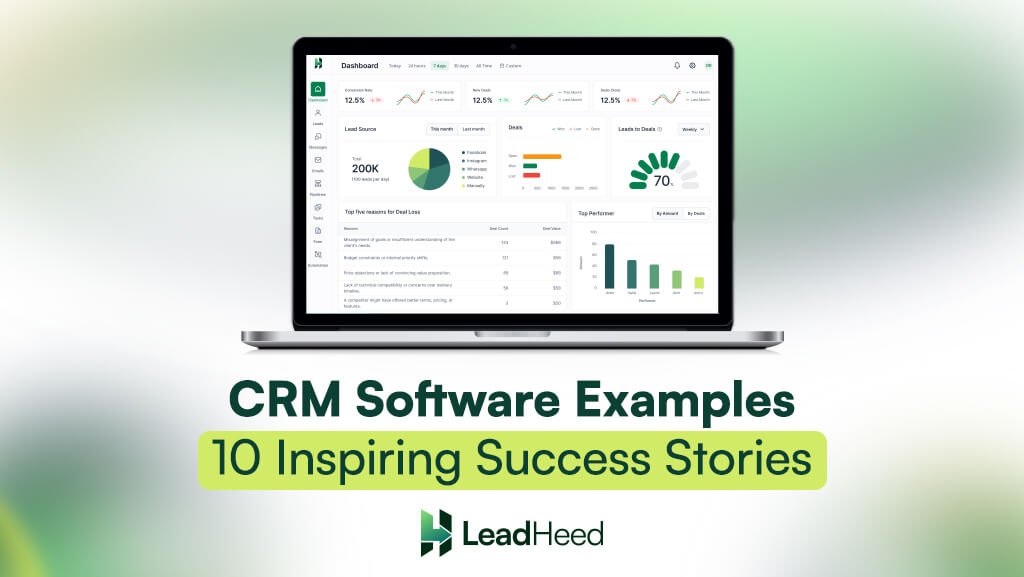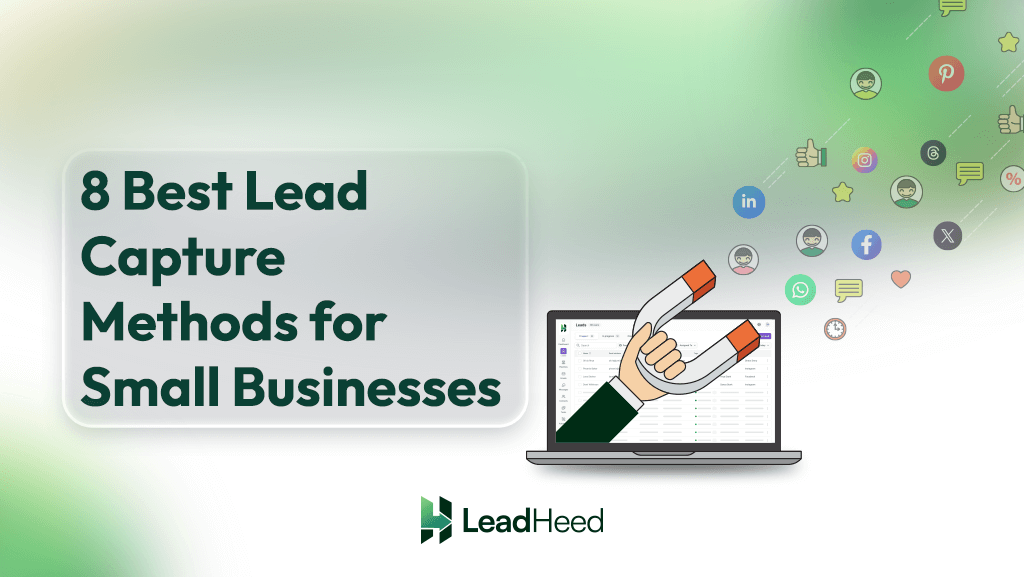When you’re trying to grow your business, choosing the right tools to manage customer relationships and streamline your marketing can feel overwhelming. Two of the most commonly recommended platforms, CRMs and marketing automation tools, often sound like they do the same thing. But they serve different, though complementary, purposes.
If you’ve ever wondered whether you need a CRM, marketing automation, or both, you’re not alone. Making the wrong choice could mean wasted time, money, and effort for a business.
In this article, we’ll break down the key differences between CRM and marketing automation, highlight where they overlap, and help you decide which is the better fit for your business goals.
What is CRM (Customer Relationship Management)?
Customer Relationship Management (CRM) is a system that helps businesses manage interactions with both current and potential customers. The ultimate goal of a CRM is to build stronger and more profitable relationships with customers.
With CRM, companies can stay connected to customers while streamlining processes to grow their business. The system collects and organizes customer data from various sources, helping you get data-driven insights. This, in turn, enables you to improve customer relationships, enhance your marketing and sales efforts, and provide better customer service.
Benefits of CRM
Using CRM offers many benefits to any business organization, including better data organization, stronger customer relationships, streamlined processes, and increased sales. Here are some major benefits of CRM explained briefly:
1. Centralized customer data
The primary benefit of CRM is centralized customer data. CRM software brings together customer records, sales history, and communication logs in one system. This makes access to information for teams easier to improve customer relationships and generate more customers.
2. Improved customer relationships
With all customer information stored in one place and easier access, teams can better understand what customers like and offer personalized services. This makes customers feel valued and understood, encouraging them to stay loyal.
3. Enhanced sales and customer service
Another significant benefit of a CRM is that it enhances sales and customer service. For sales, it manages leads, tracks customer interactions, and identifies opportunities. This allows teams to focus on the right prospects and close deals more efficiently.
In customer service, a CRM provides a complete view of each customer’s history, enabling a personalized and quick response. This improves customer experience, generates trust, and encourages repeat business, resulting in loyalty and increased revenue.
What is Marketing Automation?
Marketing automation is the use of software to automate and streamline key marketing tasks such as email marketing, lead nurturing, customer segmentation, and campaign performance tracking. It helps marketing teams save time, improve efficiency, and deliver personalized experiences at scale.
Marketing automation also tracks the effectiveness of marketing efforts. Additionally, it offers easy-to-read dashboards that display marketing performance, enabling businesses to make informed decisions.
Benefits of Marketing Automation
Marketing automation streamlines marketing operations by automating processes and enhancing results. It helps teams work smarter, save time, and connect with customers on a personal level.
1. Time Savings and Higher Productivity
Marketing automation saves your team’s time by automating repetitive tasks, such as follow-ups and emails. This lets them focus on more valuable work, like building strong, long-term customer relationships, leading to higher productivity.
2. Better Marketing and Sales Alignment
Marketing automation makes data accessible and shareable across marketing and sales departments. With all current data together in one place, they can communicate better and collaborate more efficiently without the back-and-forth.
3. Consistent Brand Communication
Automation enables you to deliver a consistent message across multiple platforms, such as email, social media, and text. This ensures your brand maintains a unified voice everywhere.
4. Lead Nurturing
Lead nurturing feels pointless when leads don’t convert into paying customers. Using marketing automation enhances lead nurturing by targeting the right customers with the right products. It categorizes customers based on their demographics and behavior and offers tailored services.
Key Differences Between Marketing Automation and CRM
While CRM focuses on managing customer interactions and building long-term relationships, marketing automation is designed to streamline and automate key marketing activities to attract and nurture leads. Below are the key differences between the two:
| Customer Relationship Management (CRM) | Marketing Automation |
| 1. The primary purpose of CRM is to manage and track customer relationships and interactions. | 1. The primary purpose of marketing automation is to automate and streamline marketing processes. |
| 2. Sales, marketing, and support teams are the main users of CRM. | 2. Marketing teams are the main users of marketing automation. |
| 3. Its goal is to close deals and build long-term relationships. | 3. Its goal is to attract and nurture leads until they convert into customers. |
| 4. It focuses on maintaining sustainable customer relationships. | 4. It focuses on enhancing marketing productivity. |
| 5. The key features include contact and lead management, workflow automation, forecasting sales, etc. | 5. The key features include lead scoring, email marketing, campaign management, etc. |
| 6. It essentially automates sales activities like follow-ups and data entry. | 6. It automates marketing activities like email marketing and campaign management. |
| 7. CRM software converts qualified leads to customers. | 7. Marketing automation software transforms new leads into qualified leads. |
| 8. You need CRM when you want to boost customer retention. | 8. You need marketing automation when you need to generate more leads. |
| 9. Best used for strengthening customer relationships and closing deals. | 9. Best used for scaling marketing efforts and improving lead quality. |
How Do CRMs and Marketing Automation Work Together?
Marketing automation and CRM work hand in hand to create a complete customer engagement system. Here’s how they work together:
- CRM centralizes all customer information in one place. This information can be used by marketing teams to categorize customers into different groups based on demographics and preferences.
- Marketing automation, on the other hand, identifies qualified leads, which are passed to CRM to follow up and close the sale.
- Both solutions allow your teams to work with one another, so marketing drives leads and sales converts them into clients.
- You can track the whole customer lifecycle, from first contact to final purchase, within a single system.
- It ensures consistent communication, which makes your messaging sound less automated and more personalized.
Therefore, integrating these two tools saves time, as it automates repetitive tasks such as follow-ups, emails, and data updates. Together with marketing automation, CRM makes your marketing and sales smarter, faster, and more efficient.
Advantages of Combining Marketing Automation and CRMs
Integrating marketing automation and CRMs provides the combined benefits of both tools. This is not only cost-effective but also offers seamless customer experiences. Below are some advantages you get after combining these two tools.
1. Unified View of Data
A CRM tracks customer details, such as names and purchase history. Marketing automation tracks the performance of your ads and emails. Combining them puts all this info in one place, so your team can easily find what they need to sell better and improve ads.
2. Cost-effective
Integrating CRM and marketing automation is cost-effective, as it saves time, reduces manual labor, and eliminates the need for multiple tools. Your marketing and sales teams can work in one system instead of switching between platforms. It is easy to follow up on leads and send targeted messages.
You don’t need to hire additional staff or buy separate software. With everything connected, you do more with less, making your business grow without extra cost.
3. Personalized customer engagement
CRM serves as a unified database where teams can track every customer interaction. When combined with marketing automation, it enables your team to deliver personalized messages based on real behavior and preferences. This kind of tailored outreach makes customers feel understood and appreciated, leading to stronger relationships and a higher likelihood of converting leads into loyal, long-term clients.
4. Streamlined customer experience
Combining these solutions allows you to provide enhanced customer care by tracking activity and automating timely responses. You can send relevant marketing messages in a timely manner, boosting satisfaction and maximizing upselling or cross-selling.
Conclusion
When comparing marketing automation vs CRM, it’s clear that CRM enables you to manage customer relationships, while marketing automation attracts and follows up with new leads. By combining these two, your team will act faster, be more organized, and deliver a better experience to every customer.
As we’ve seen, using CRM and marketing automation together offers a more efficient, personalized, and data-driven way to manage the entire customer journey, from first contact to closed deals.
If you’re looking for a tool that integrates both functions seamlessly, LeadHeed is designed to do just that. It combines powerful CRM features with built-in marketing automation so your sales and marketing teams can work in sync, save time, and engage customers more effectively.
Whether you’re a small business scaling operations or a startup trying to improve lead conversions, LeadHeed offers an all-in-one solution to help you grow smarter.
Start your journey with LeadHeed today.
FAQ
What is the difference between marketing automation and CRM?
CRM is all about managing customer interactions and creating lasting relationships, whereas marketing automation is about automating and streamlining important marketing tasks to draw in and develop leads.
What is marketing automation?
Marketing automation is the process of using tools to streamline and automate key marketing processes, such as targeted email marketing and campaign management for generating and nurturing leads.
How to integrate CRM and marketing automation?
To integrate CRM and marketing automation, choose the right tool, map your customer journey, and personalize messages. Create automated workflows to deliver timely content and track performance to maximize strategy, providing an efficient customer experience.
What is the purpose of marketing automation in CRM?
The purpose of marketing automation in CRM is to save time and boost results by automating repetitive marketing tasks like sending emails, follow-ups, and nurturing leads. It works by using customer data stored in the CRM to create more personalized and targeted campaigns.



